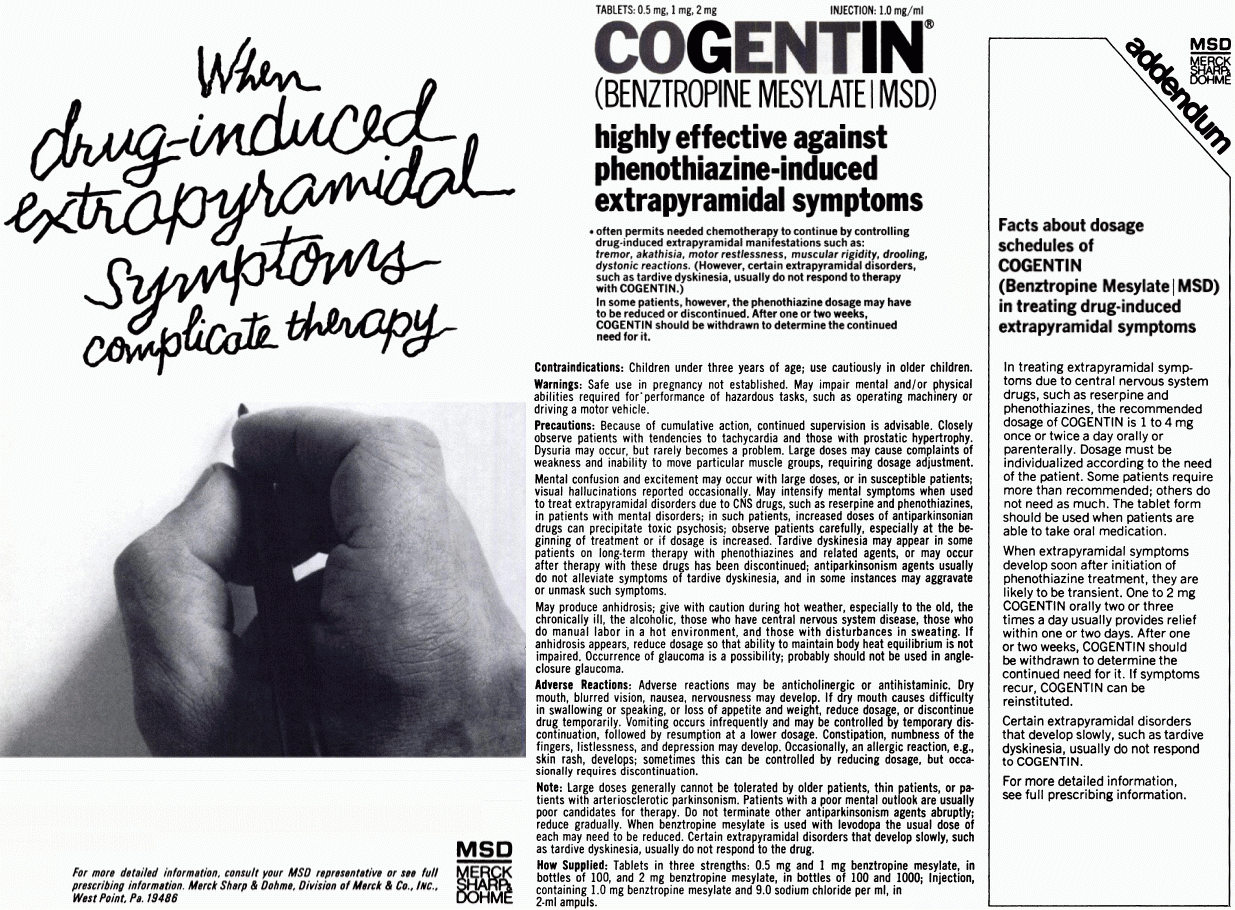

|
|
Cogentin advertisement, 1976. Archives of General Psychiatry, Vol. 33, No. 5. when drug-induced extrapyramidal symptoms complicate therapy COGENTIN® (benztropine mesylate MSD) highly effective against phenothiazine-induced extrapyramidal symptoms * often permits needed chemotherapy to continue by controlling drug-induced extrapyramidal manifestations such as: tremor, akathisia, motor restlessness, muscular rigidity, drooling, dystonic reactions. (However, certain extrapyramidal disorders, such as tardive dyskinesia, usually do not respond to therapy with Cogentin.) In some patients, however, the phenothiazine dosage may have to be reduced or discontinued. After one or two weeks, Cogentin should be withdrawn to determine the continued need for it. Contraindications: Children under three years of age; use cautiously in older children. Warnings: Safe use in pregnancy not established. May impair mental and/or physical abilities required for performance of hazardous tasks, such as operating machinery or driving a motor vehicle. Note: Large doses generally cannot be tolerated by older patients, thin patients, or patients with arteriosclerotic parkinsonism. Patients with a poor mental outlook are usually poor candidates for therapy. Do not terminate other antiparkinsonism agents abruptly; reduce gradually. When benztropine mesylate is used with levodopa the usual dose of each may need to be reduced. Certain extrapyramidal disorders that develop slowly, such as tardive dyskinesia, usually do not respond to the drug. For more detailed information, consult your MSD representative or see full prescribing information. Merck Sharp & Dohme, Division of Merck & Co., Inc. West Point, Pa. 19486 |